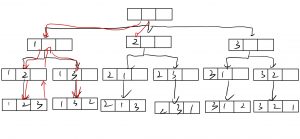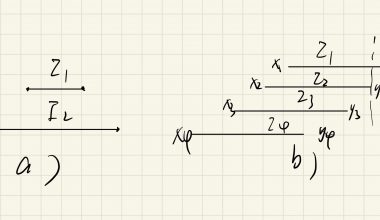Given any positive integer , you are supposed to find all of its prime factors, and write them in the format $N=p1^{k_1}\times p2^{k_2}\times …\times pm^{k_m}$
Input Specification:
Each input file contains one test case which gives a positive integer in the range of long int.
Output Specification:
Factor in the format = ^*^*…*^, where ‘s are prime factors of in increasing order, and the exponent is the number of — hence when there is only one , is 1 and must NOT be printed out.
Note: in case has no prime factor, simply print the only factor it has. (Thanks to 王忠文 for pointing out this special case.)
Sample Input:
97532468
Sample Output:
97532468=2^2*11*17*101*1291
#include <iostream>
#include <string>
#include <algorithm>
#include<math.h>
#include<queue>
#include<vector>
using namespace std;
int N;
//打印素数表
int prime[100010];
int p_num = 0;
bool is_prime(int n) {
if (n == 1)return false;
int sqr = (int)sqrt(1.0 * n);
for (int i = 2; i < sqr; i++) {
if (n % i == 0)return false;
}
return true;
}
void prime_table() {
for (int i = 2; i < 100010; i++) {
if (is_prime(i) == true) {
prime[p_num] = i;
p_num++;
}
}
}
struct factor {
int x;
int cnt;
}fac[10];
int main() {
cin >> N;
cout << N << '=';
prime_table();
int prime_count = 0;
if (N == 1)cout << '1';
else {
for (int i = 0; i < p_num; i++) {
if (N % prime[i] == 0) {
fac[prime_count].x = prime[i];
fac[prime_count].cnt = 0;
while (N % prime[i] == 0) {
fac[prime_count].cnt++;
N = N / prime[i];
}
prime_count++;
}
}
if (N != 1) {
fac[++prime_count].x = N;
fac[prime_count].cnt = 1;
}
for (int i = 0; i < prime_count - 1; i++) {
if (fac[i].cnt > 1)cout << fac[i].x << '^' << fac[i].cnt << '*';
else cout << fac[i].x << '*';
}
if (fac[prime_count - 1].cnt > 1)cout << fac[prime_count - 1].x << '^' << fac[prime_count - 1].cnt;
else cout << fac[prime_count - 1].x;
}
}




最新评论